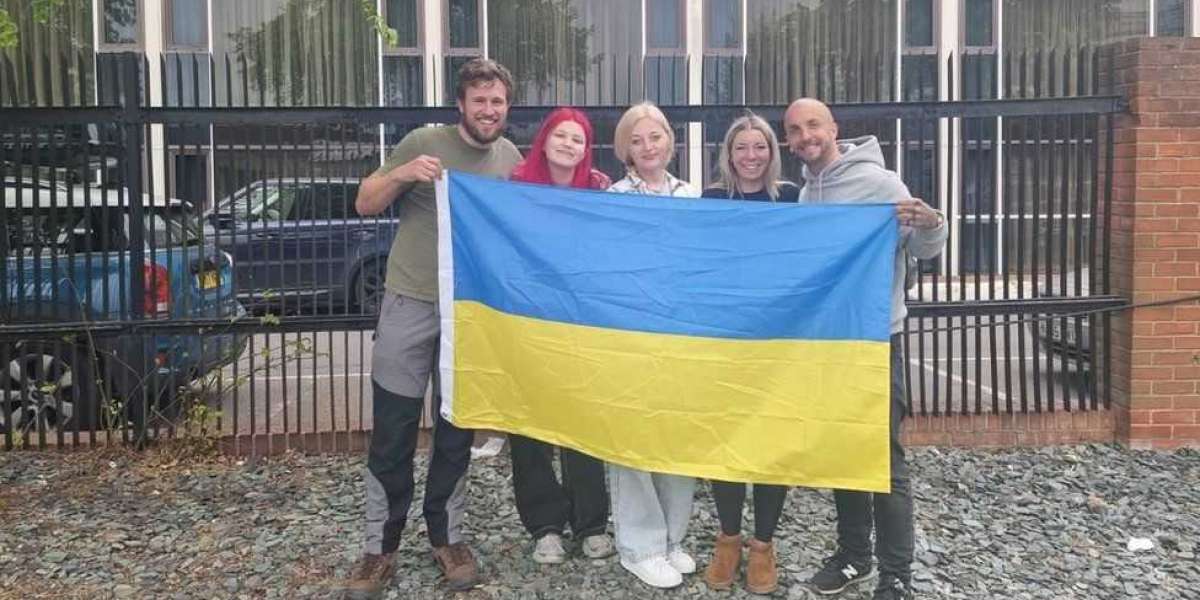Tens of thousands of Ukrainian refugees have fled the Russian invasion and are now living in the UK. But two months on, how has it been working out and are there areas of concern?
More than 60,000 people fleeing Ukraine have arrived in the UK - some with family visas and others under the Homes for Ukraine sponsorship scheme, which enables members of the public to host an individual or group. Latest figures show 115,000 visas have been issued.
But the experience of settling into life in the UK has differed wildly for many Ukrainians.
While there are many positive stories, charities have also warned of overcrowding, a lack of financial support and the risk of homelessness - particularly for people arriving on the family visa scheme that enables Ukrainians to join relatives who were already in the UK.
Family hosts are struggling
There is a "lot of pressure" among Ukrainians living in the UK to bring as many relatives over as possible, according to Kate Smart, CEO of the advice charity Settled.
She says this can lead to people saying yes to "more than they can cope with", and is something we are "most concerned" about.
"So people are ending up at the doors of local authorities needing homeless accommodation," Kate adds.
She says part of the problem is that those hosting their own relatives need more financial support.
Under the sponsorship scheme, hosts are entitled to a monthly £350 tax free payment - but people hosting family members are not.
Lack of support for some
"It's been the hardest time of our lives," says Natalia Korchevska, a Ukrainian woman in the UK who has opened her home to relatives fleeing the war.
For the past two months she has been living in a house of nine people.
Natalia and her husband welcomed her sister and family, as well as her husband's sister, to their five-bedroom house in Staffordshire.
"I know it's my family and I want to help," she says. "But I want the government to help a bit more."
"We've had no support at all," she says, from financial support to government guidance, since her relatives arrived on family visas.
The communities department says people on both family and sponsorship visas have access to the same services as UK nationals, and councils are receiving £10,500 in funding for each arrival under the sponsorship scheme.
Natalia, who works for the NHS, explains that a change allowing people who have travelled on a family visa to switch to the sponsorship scheme would really help. "I'm frustrated and not happy, but it's my family so I will support them."
Rising risk of homelessness
While many relationships between hosts and refugees are positive, some Ukrainians have ended up needing homeless accommodation as a result of relationships breaking down.
Kate Smart from the Settled charity says she is "getting quite a few calls about it".
And councils are "already seeing a concerning increase in homelessness" among those who have arrived from Ukraine, says Cllr James Jamieson, chair of the Local Government Association.
In those cases, it would be best if families were "re-matched" with a new sponsor so they "can rebuild their lives in their new communities," he says.
One Ukrainian refugee who recently arrived in north-east England says she and her teenage son were left homeless after being manipulated by their hosts.
"I am fleeing the war and all of a sudden I am on the street," says the woman, 45 who fled Bucha, north of Kyiv.
The mother and her 13-year-old son - whose identities are being protected - told the BBC she thought her hosts would be kind and caring, but within weeks she "did not feel safe or secure".
If there is a breakdown in relationships, re-matching should be the priority, rather than temporary homeless accommodation, agrees Sara Nathan from Refugees at Home.
More briefing before arrival, financial support to relatives hosting family members, and an awareness that hosts are not wholly responsible for their guests' wellbeing, are also among Sara's proposals.
"The hosts are doing a great thing by providing shelter, warmth, food and a listening ear, but they can't be 100% responsible."
The government says "very few" of these sponsorships are breaking down, and when they do local authorities have provided support or found a more suitable sponsor.








